The Good Club, The Giving Pledge, and the Globalists Agenda for Total Control

Oct 04, 2024
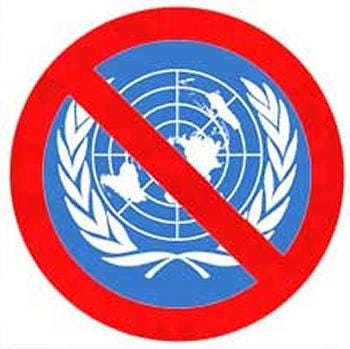
Since the end of World War II, the United Nations (UN) and the World Bank have evolved into powerful instruments for global “elites”, serving to impose their globalist will under the guise of humanitarian efforts. Initially founded to supposedly promote peace and development, these institutions have increasingly become tools for a powerful few to steer the course of global events. This dynamic aligns closely with the agendas promoted by wealthy individuals, especially those in the billionaire circle jerk known as the Good Club.
The Good Club
·
December 12, 2023

In 2009, members of the Good Club—a secretive gathering of billionaires that included Bill Gates, Warren Buffett, George Soros, Oprah Winfrey, and David Rockefeller—met in New York City to discuss what they called “the world’s problems.” This gathering marked a pivotal moment in the intertwining of wealth and global governance. Just a year later, they launched the Giving Pledge, committing to donate at least half of their wealth to “philanthropic” causes. However, beneath the surface of this seemingly altruistic initiative lies a seemingly calculated strategy to consolidate power and influence over global affairs.
The Historical Context of Wealth and Power
Historically, the rich have wielded considerable influence over government policy, often operating through philanthropic entities that mask their true intentions. The tradition of using wealth to shape public policy dates back centuries, with wealthy elites funding educational institutions, media outlets, and political campaigns to ensure their interests are represented. Today, this legacy continues as billionaire philanthropists leverage their financial resources to manipulate government agendas, pushing for policies that align with their own goals.
The Good Club represents a modern manifestation of this age-old dynamic, where “philanthropy” is used not only to address social issues but also to advance specific global agendas. By aligning themselves with institutions like the UN and the World Bank, these billionaires can exert influence on a global scale, promoting initiatives that align with their vision for a one-world government and other global agendas and initiatives.
The Good Club’s Agenda and Its Ties to the UN and World Bank
The Giving Pledge and the agendas promoted by the Good Club are closely intertwined with the goals of the UN and the World Bank . These institutions, once thought to be bastions of international cooperation, have increasingly adopted the rhetoric of the billionaire class. For instance, the Sustainable Development Goals (SDGs) established by the UN mirror many of the philanthropic objectives put forth by Good Club members. By aligning their initiatives with the UN’s agenda, these billionaires can advance their interests while presenting themselves as champions of global development and safeguarding humanity. They make a one world government ran by a small few sound so great don’t they? Except the policies and mandates that these individuals ushered in with their very orchestrated COVID-19 crisis are only a preview of what we would have in store for the 99% of us if we continue to allow these individuals to continue with their plans.
Through their foundations, members of the Good Club fund projects that often dovetail with UN initiatives. For example, Bill Gates (who with his affluence has gained the title of the world’s most powerful doctor when he never went to medical school and doesn’t have a license) has heavily invested in global health programs that align with the World Health Organization’s (WHO) objectives, further intertwining the interests of wealthy individuals with global governance. This partnership creates a feedback loop where philanthropic endeavors bolster institutional agendas, allowing billionaires to wield considerable influence over the direction of global policy.
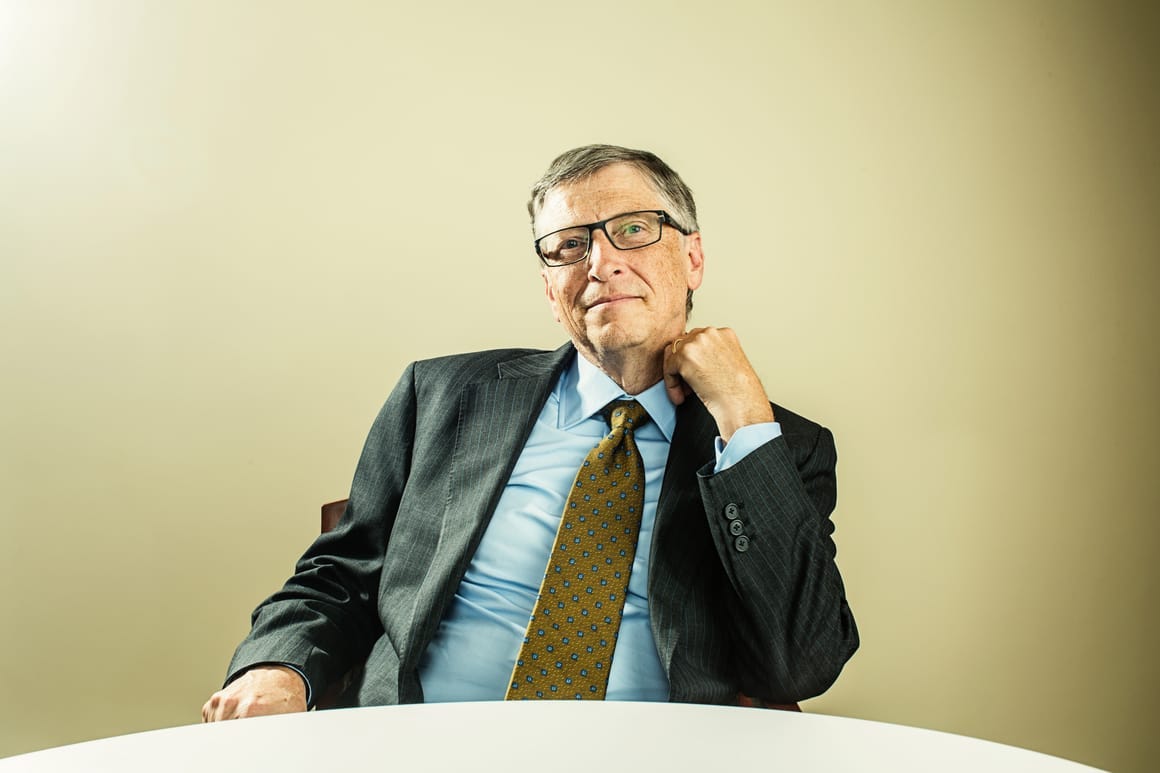
“Microsoft co-founder and philanthropist Bill Gates | Stephen Voss/REDUX.” Image from https://www.politico.eu/article/bill-gates-who-most-powerful-doctor/
The Giving Pledge: A Mechanism for Control
The Giving Pledge, established in 2010, is not merely a philanthropic initiative; it is a strategic framework that enables the wealthy elite to maintain power across generations. According to a report from Inequality.org, the pledge encourages billionaires to commit at least half of their wealth to charitable causes. However, this charitable giving often serves to reinforce the very systems of inequality that allowed these individuals to amass their fortunes in the first place. The report highlights that the Giving Pledge allows billionaires to direct their wealth toward their preferred initiatives, effectively shaping the social landscape while sidestepping the scrutiny that comes with direct political involvement.
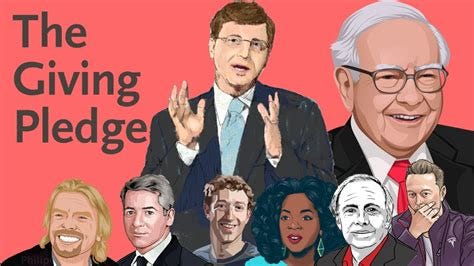
Image from YouTube
This setup ensures that the rich not only retain significant control over their resources but also influence public policy in a manner that perpetuates their power. By establishing their foundations, these individuals can engage in philanthropic activities that align with their interests, often leading to tax advantages and the ability to steer societal norms and values. Many of these philanthropic efforts are strategically designed to limit the impact of systemic inequalities rather than address the root causes, allowing billionaires to avoid more extensive reforms that could challenge their wealth.
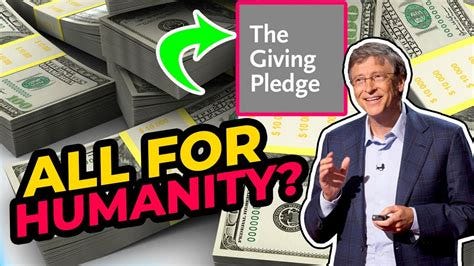
Image from YouTube
The Giving Pledge serves as a mechanism for the wealthy to direct public resources toward their favored causes while maintaining control over their wealth. By establishing foundations and philanthropic initiatives, these billionaires can craft narratives that justify their influence in policy-making processes. This is particularly evident in their approaches to issues like education, healthcare, and climate change, where they often advocate for market-driven solutions that align with their interests.
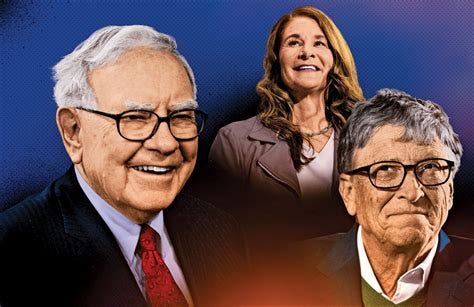
The Next Gen Giving Pledge, launched in 2014, is an extension of the original Giving Pledge designed to involve the children and heirs of the ultra-wealthy in global philanthropy. While the original Giving Pledge, initiated by Bill and Melinda Gates and Warren Buffett, appears to promote the idea of billionaires giving away the majority of their wealth, the Next Gen Pledge subtly reinforces the cycle of wealth and power within elite families. Instead of truly relinquishing control, the Pledge transfers influence and vast wealth to the younger generation, allowing them to maintain the family’s economic and social dominance under the guise of philanthropy. This continuation ensures that power remains concentrated within a small group of global elites, who shape the narrative around charitable giving while avoiding meaningful redistribution of wealth.
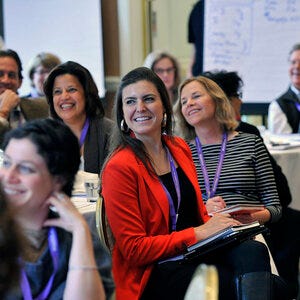
Katherine Lorenz from the Next Gen Giving Pledge and granddaughter of the late natural gas billionaire, George P. Mitchell, who was an original signatory at a meeting. Image from https://philanthropynewsdigest.org/news/giving-pledge-includes-next-gen-members-in-annual-gathering
The Next Gen Giving Pledge group includes almost 300 members globally, ranging from ages 18 to 75. Unlike their older relatives, who publicly signed the original Giving Pledge, the identities of these younger members are kept secret, hiding them from public scrutiny. While the group claims this privacy is to protect the younger generation, it effectively allows them to avoid accountability. These heirs are free to talk about their involvement if they choose, but the lack of transparency only reinforces the notion that this exclusive group continues to operate behind closed doors, maintaining control and influence while presenting a charitable façade.
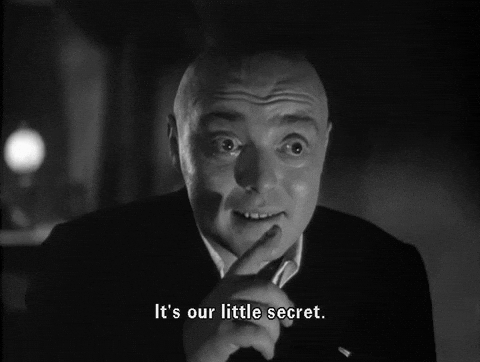
Image from giphy.com
The Good Club, the Giving Pledge, and Agenda 2030: A Strategic Alignment
Shortly after the emergence of The Good Club and the Giving Pledge—both initiatives driven by elite billionaires aiming to reshape global policy through philanthropy—the United Nations approved the Sustainable Development Goals (SDGs) in 2015. This milestone appears to have reinforced their collective strategy to push forward a one-world government under the guise of “global development.” The SDGs have been used as a framework to accelerate their Agenda 2030 goals, with these wealthy elites leveraging their foundations and influence to control key global narratives and policies.
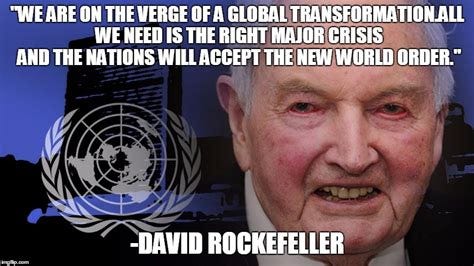
Mechanisms of Influence
Philanthropic foundations and their wealthy benefactors manipulate government policies and public discourse in several ways:
- Lobbying and Advocacy: Wealthy individuals often fund lobbying efforts to influence legislation, pushing for policies that align with their interests while promoting public advocacy campaigns to mobilize grassroots support.
- Targeted Grant-Making: By directing funds to specific organizations that align with their policy goals, they can steer the focus of advocacy efforts and influence public discourse.
- Think Tanks and Research: Establishing think tanks allows these elites to produce research that supports their viewpoints, creating a foundation for policy changes that serve their interests.
- Public-Private Partnerships: Collaborating with government entities enables foundations to implement programs that align with their agendas, further solidifying their influence in policy-making.
- Shaping Education: Foundations like the Gates Foundation influence educational curricula and teacher training, promoting standardized testing and policies that reflect their ideologies.
- Media Influence: Funding media campaigns allows these philanthropists to shape public perception and discourse around critical issues, ensuring that their narratives dominate the conversation.
- Global Policy Influence: Through partnerships with the UN and World Bank, they shape global responses to crises, pushing agendas that align with their interests and enhancing their control over international policy.
- Coalition Building: By funding coalitions of nonprofits and advocacy groups, they amplify their voices and increase their influence over public policy decisions.
- Framing Issues: They frame social problems to align with their interests, influencing government focus toward specific solutions that often benefit their objectives.
The Great Takeover: COVID-19 as a Catalyst
The culmination of these efforts by this small group of wealthy individuals has resulted in a great takeover of global governance, facilitated by the COVID-19 pandemic. Without this very contrived and carefully orchestrated staged crisis the goals of the United Nations and their rich counterparts would have had a much more difficult time getting people to get on board with their globalist agendas. The coordinated response to the pandemic exemplifies how the interconnected interests of the Good Club, the UN, and the World Bank can mobilize resources and influence public policy on an unprecedented scale. Under the pretense of public health, these elites were able to implement measures that not only controlled populations but also furthered their agendas.
The pandemic provided a convenient cover for the UN and its affiliates to push for policies that align with the Agenda 2030 framework, promoting a vision of sustainable development (which is a total guise to take over global governance) that often benefits corporate interests.
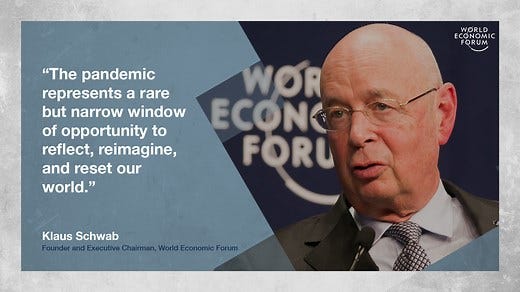
Image from https://www.weforum.org/agenda/2020/06/now-is-the-time-for-a-great-reset/
The Great Reset, a concept promoted by the World Economic Forum (WEF), seeks to reshape governments, economies, and societies in the wake of COVID-19, further aligning with the agendas of billionaire philanthropists.
By leveraging their influence and resources, members of the Good Club helped to usher in a narrative around COVID-19 that prioritized global cooperation and governance, often at the expense of individual freedoms and democratic processes. As governments scrambled to respond, these billionaires positioned themselves as essential players, offering funding and solutions that would reshape global policies in their favor.
The interconnected web of wealthy individuals and their foundations plays a critical role in shaping public policy and global discourse. By leveraging their resources and influence, members of the Good Club push for a one-world agenda that aligns with their interests while presenting themselves as benevolent philanthropists. As these individuals work behind the scenes, often shielded by anonymity, the true extent of their influence and the potential repercussions for democratic processes and societal welfare remain obscured.
In 2015, the United Nations General Assembly adopted the 2030 Agenda for Sustainable Development, which included the 17 Sustainable Development Goals (SDGs), signed by 193 UN member states as a blueprint for global development. Key members of the Giving Pledge, like Bill Gates, Mark Zuckerberg, and George Soros, played instrumental roles in advancing this agenda, using their wealth and influence to fund initiatives aligned with the SDGs, such as global health, poverty reduction, and climate action. While presented as altruistic efforts, their involvement in shaping the SDGs reinforces their power and advances their interests under the guise of philanthropy, driving forward their globalist vision encapsulated in Agenda 2030.
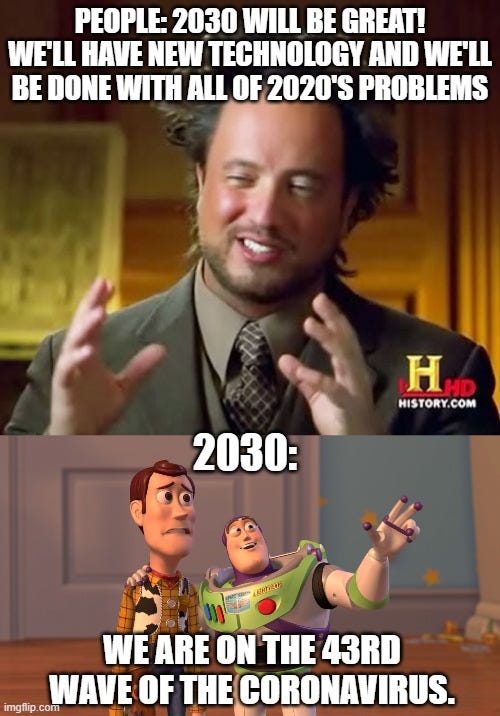
In a world increasingly dominated by the agendas of a powerful few, understanding the mechanisms through which they operate is essential for holding them accountable and ensuring that the voices of the many are not drowned out by the wealth of the few. The battle for a more equitable and transparent society begins with unraveling the intricate ties between wealth, power, and global governance, shedding light on the hidden forces that shape our world.
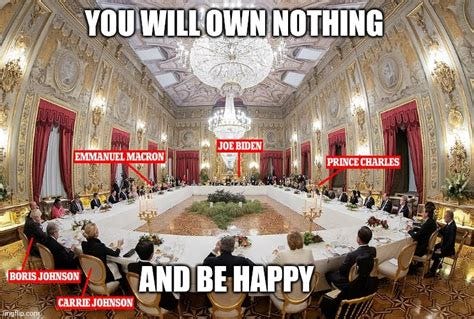
The coordinated response to the COVID-19 pandemic reveals the depths of their control, illuminating the ways in which the rich conspire to manipulate governments and public policy to fulfill their grand designs.
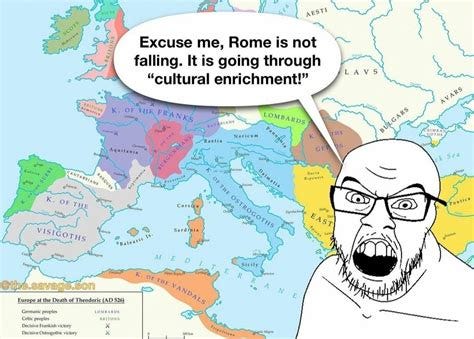
Image from https://it.memedroid.com/memes/detail/3796705/Agenda-2030
Ultimately, we must remain vigilant and informed to resist the encroachment of these insidious agendas that seek to dominate our societies and undermine our freedoms. And when these psychopaths tell us what they plan to do to us…we should start believing them.
The Giving Pledge: Public Signatories vs. Silent Billionaires
As of October 2024, over 240 billionaires have publicly committed to The Giving Pledge, a movement encouraging the ultra-wealthy to donate the majority of their fortunes to philanthropy. However, notable figures like Amazon founder Jeff Bezos are conspicuously absent from the official list. Despite not signing the pledge, Bezos has publicly promised to give away much of his estimated $160 billion fortune. Interestingly, his ex-wife, MacKenzie Scott, is officially on the Giving Pledge list and has already donated billions to various causes. It seems that billionaires like Bezos, through such promises, are less focused on genuine philanthropy and more on advancing personal or corporate agendas.
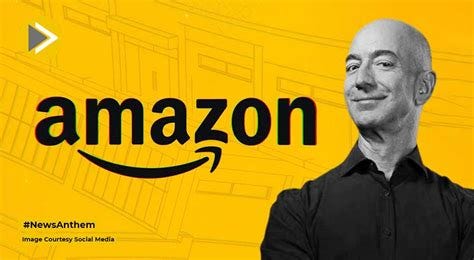
This strategic giving often bolsters their influence in global matters like climate change, technology, and social initiatives, while in the long run potentially securing or even increasing their wealth and power. It seems that all of these billionaires, whether officially part of the Giving Pledge or not, are rapidly advancing a globalist Agenda 2030 under the guise of philanthropy—an agenda that appears to have little to do with protecting the environment or people, and more to do with consolidating control over global governance and societal systems.
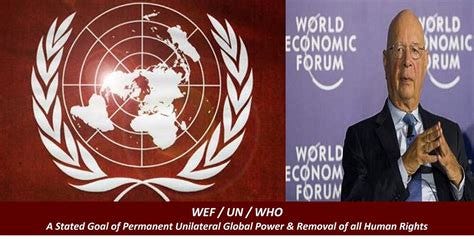
The Giving Pledge members, many of whom wield immense wealth and influence, played significant roles both before and during the orchestrated crisis, using their resources to shape public narratives while operating largely behind the scenes. Their vast fortunes afford them the ability to control key industries, governments, and media, allowing them to remain shielded from scrutiny as they push forward agendas like Agenda 2030.
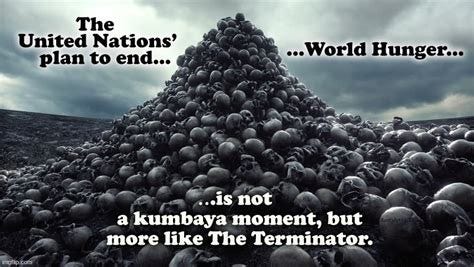
These elites seem to be orchestrating one of the greatest crimes against humanity under the guise of philanthropy, all while advancing their global interests that benefit themselves and their inner circles. The question remains: will the public wake up to the massive role these individuals have played in shaping a world order designed to maintain their power and control?
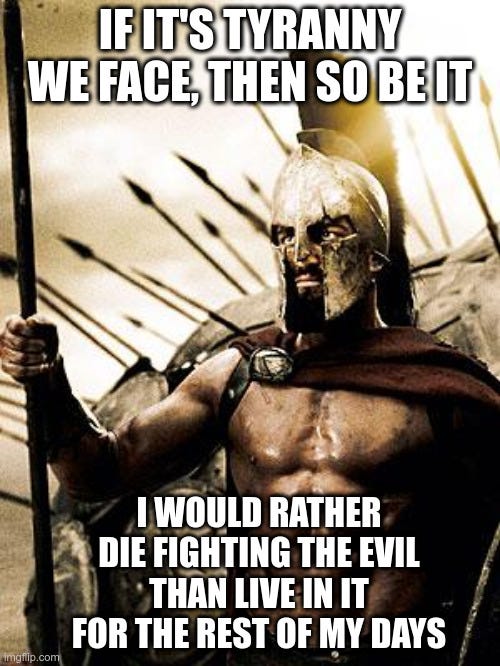
The Public Giving Pledge Members (This list is so massive it will have to be broken down into different parts of all these people working together on their global agenda):
Warren Buffett
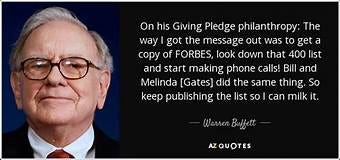
- Wealth: $121 billion
- Source: Berkshire Hathaway (investments, insurance)
- Foundations/Philanthropy: Buffett has committed the majority of his wealth to the Bill & Melinda Gates Foundation and other family foundations.
- COVID-19 Involvement: Buffett’s financial support has allowed the Gates Foundation to serve as a critical player in the global COVID-19 response. While he may not have been as vocal as other billionaires, his influence ensures that the Gates Foundation’s priorities shape public health narratives, promoting vaccine distribution aligned with corporate interests.
- Manipulation of Governments and Policies: Buffett has utilized his immense wealth and philanthropic endeavors to influence government policies and public health strategies. His alignment with the Gates Foundation has raised concerns over the concentration of power among a few wealthy individuals in shaping global health responses. Through strategic investments and support for public health initiatives, Buffett has manipulated narratives to favor corporate solutions over more equitable, grassroots approaches. This dynamic reinforces corporate interests in public health policy, paving the way for increased surveillance and control under the guise of pandemic response.
- Agenda 2030/SDGs: Buffett’s philanthropy indirectly supports the UN’s Sustainable Development Goals (SDGs), but critics argue that his approach often prioritizes business interests over genuine humanitarian efforts. By pushing for market-driven solutions, he aids in the entrenchment of capitalist frameworks that can exacerbate inequalities rather than resolve them.
- Political Stance: Buffett has presented himself as a champion of higher taxes on the wealthy and stronger social safety nets, but his actions often reflect a more self-serving agenda. He has invested in numerous industries that align with his interests while supporting political candidates and policies that maintain the status quo, allowing him to further entrench his influence in the economic landscape. His purported altruism appears to mask a deeper commitment to preserving his wealth and power within a global system increasingly defined by oligarchy.

Image from https://givingpledge.org/pledger?pledgerId=177
Pledge Letter
My Philanthropic Pledge
In 2006, I made a commitment to gradually give all of my Berkshire Hathaway stock to philanthropic foundations. I couldn’t be happier with that decision.
Now, Bill and Melinda Gates and I are asking hundreds of rich Americans to pledge at least 50% of their wealth to charity. So I think it is fitting that I reiterate my intentions and explain the thinking that lies behind them.
First, my pledge: More than 99% of my wealth will go to philanthropy during my lifetime or at death. Measured by dollars, this commitment is large. In a comparative sense, though, many individuals give more to others every day.
Millions of people who regularly contribute to churches, schools, and other organizations thereby relinquish the use of funds that would otherwise benefit their own families. The dollars these people drop into a collection plate or give to United Way mean forgone movies, dinners out, or other personal pleasures. In contrast, my family and I will give up nothing we need or want by fulfilling this 99% pledge.
Moreover, this pledge does not leave me contributing the most precious asset, which is time. Many people, including—I’m proud to say—my three children, give extensively of their own time and talents to help others. Gifts of this kind often prove far more valuable than money. A struggling child, befriended and nurtured by a caring mentor, receives a gift whose value far exceeds what can be bestowed by a check. My sister, Doris, extends significant person- to-person help daily. I’ve done little of this.
What I can do, however, is to take a pile of Berkshire Hathaway stock certificates—“claim checks” that when converted to cash can command far-ranging resources—and commit them to benefit others who, through the luck of the draw, have received the short straws in life. To date about 20% of my shares have been distributed (including shares given by my late wife, Susan Buffett). I will continue to annually distribute about 4% of the shares I retain. At the latest, the proceeds from all of my Berkshire shares will be expended for philanthropic purposes by 10 years after my estate is settled. Nothing will go to endowments; I want the money spent on current needs.
This pledge will leave my lifestyle untouched and that of my children as well. They have already received significant sums for their personal use and will receive more in the future. They live comfortable and productive lives. And I will continue to live in a manner that gives me everything that I could possibly want in life.
Some material things make my life more enjoyable; many, however, would not. I like having an expensive private plane, but owning a half-dozen homes would be a burden. Too often, a vast collection of possessions ends up possessing its owner. The asset I most value, aside from health, is interesting, diverse, and long-standing friends.
My wealth has come from a combination of living in America, some lucky genes, and compound interest. Both my children and I won what I call the ovarian lottery. (For starters, the odds against my 1930 birth taking place in the U.S. were at least 30 to 1. My being male and white also removed huge obstacles that a majority of Americans then faced.)
My luck was accentuated by my living in a market system that sometimes produces distorted results, though overall it serves our country well. I’ve worked in an economy that rewards someone who saves the lives of others on a battlefield with a medal, rewards a great teacher with thank-you notes from parents, but rewards those who can detect the mispricing of securities with sums reaching into the billions. In short, fate’s distribution of long straws is wildly capricious.
The reaction of my family and me to our extraordinary good fortune is not guilt, but rather gratitude.Were we to use more than 1% of my claim checks on ourselves, neither our happiness nor our well-being would be enhanced. In contrast, that remaining 99% can have a huge effect on the health and welfare of others. That reality sets an obvious course for me and my family: Keep all we can conceivably need and distribute the rest to society, for its needs. My pledge starts us down that course.

Bill Gates
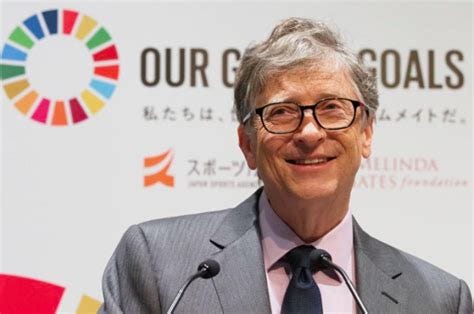
Image from https://www.ibtimes.com/list-bill-gates-businesses-microsoft-four-seasons-hotel-3631067?amp;amp
- Wealth: Estimated at $114 billion (as of 2024)
- Source: Co-founder of Microsoft.
- Foundations/Philanthropy: Co-founder of the Bill & Melinda Gates Foundation (which among some of their greatest ventures was to push common core education on our poor children to dumb them down).
- COVID-19 Involvement: Bill Gates emerged as a central figure in the global COVID-19 response, with his foundation playing a crucial role in funding vaccine research and development, particularly through collaborations with pharmaceutical giants. Gates’ involvement included significant investments in various vaccine candidates and initiatives aimed at enhancing global vaccine distribution, often positioning the Gates Foundation as a gatekeeper for public health priorities.
- Manipulation of Governments and Policies: Gates has leveraged his wealth and influence to manipulate global health policies , often advocating for privatized healthcare solutions that align with the interests of the pharmaceutical industry. His foundation has been accused of promoting a model of global health that favors vaccination programs at the expense of broader health system strengthening, leading to a dependency on external funding rather than empowering local governments and health systems.
- His extensive lobbying and partnerships with government agencies and NGOs have allowed him to influence international health agendas, often sidelining community voices in favor of top-down approaches. Gates’ relationships with entities like the World Health Organization (WHO) have raised concerns about the prioritization of initiatives that benefit corporate partners over the needs of local populations.
- Agenda 2030/SDGs: Gates is a prominent advocate for the UN Sustainable Development Goals (SDGs), particularly in health and education. However, critics argue that his strategies for achieving these goals often reinforce existing inequalities by promoting solutions that cater to wealthier nations and corporations rather than addressing systemic issues faced by marginalized communities. His focus on technology-driven solutions can overshadow the necessity of strengthening public health infrastructure in developing countries.
- Political Stance: While Gates is known for his philanthropic efforts and advocacy for climate change, public health, and education, his collaborations with large corporations and governments often reflect a neoliberal approach that prioritizes profit over people. This can create an environment where corporate interests dictate health policies, further entrenching power dynamics that benefit a select few.
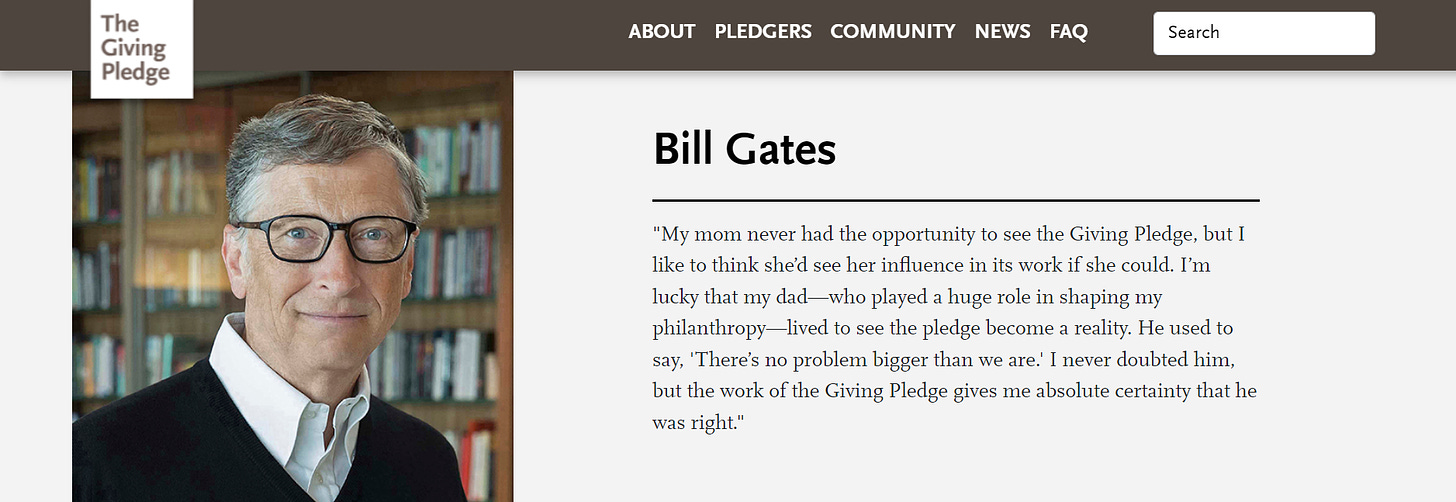
Image from https://givingpledge.org/pledger?pledgerId=429
2021 Pledge Letter
November 30, 2021
When I was a kid, my parents gave me an allowance every week. I could spend it any way I wanted, but my parents used to ask me at the dinner table how much of it I was planning to give to the Salvation Army at Christmas.
Their message was clear: if you’re in a position to help somebody, you should do it.
My parents taught me what generosity looked like through how they used their time and resources. When the time came to choose what to do with my wealth from Microsoft, I knew I had to follow their example. I decided that the vast majority of my wealth would go toward helping as many people as possible.
The vast majority of that giving is through the Bill & Melinda Gates Foundation. When we first opened our doors back in 2000, it was built around the simple idea that all lives have equal value. I saw a world where too often the circumstances of someone’s birth determined the opportunities they were given. No child should lack access to life-saving medicines or a quality education simply because of where he or she lives, and the foundation was created to address deeply unfair inequities around the globe.
More than two decades later, that idea—every person deserves the chance to live a healthy and productive life—continues to drive everything the foundation does. I’m proud of all we have achieved so far, from supporting the vaccination of more than 800 million children to helping schools keep more kids on the track to graduation. The foundation’s mission has grown over time, but it remains focused on expanding opportunity for the world’s poorest people and improving education in the United States.
The foundation is my top philanthropic priority, even as my giving in other areas has grown over the years—primarily in mitigation of climate change and tackling Alzheimer’s disease.
In 2010, Melinda French Gates, Warren Buffett and I founded the Giving Pledge. The Giving Pledge has proven to be an invaluable resource and a constant source of inspiration. It’s amazing to learn from my fellow Pledgers and find new ways together to maximize our positive impact on the world.
My mom never had the opportunity to see the Giving Pledge, but I like to think she’d see her influence in its work if she could. I’m lucky that my dad—who played a huge role in shaping my philanthropy—lived to see the pledge become a reality. He used to say, “There’s no problem bigger than we are.” I never doubted him, but the work of the Giving Pledge gives me absolute certainty that he was right.
I’m honored to be part of this community of problem solvers.
Melinda French Gates
- Wealth: Estimated at $7 billion
- Source: Co-chair of the Bill & Melinda Gates Foundation; earned wealth through her early career at Microsoft.
- Foundations/Philanthropy: Co-founder of the Bill & Melinda Gates Foundation.
- COVID-19 Involvement: Melinda French Gates has played a pivotal role in the Gates Foundation’s response to the COVID-19 pandemic, focusing on global health initiatives. Under her influence, the foundation has directed substantial funding towards vaccine development and distribution, often aligning with pharmaceutical companies and global health organizations.
- Manipulation of Governments and Policies: French Gates has utilized her position to shape global health policies, often pushing for initiatives that reflect the interests of wealthy donors rather than the needs of local populations. Her advocacy for specific health interventions, such as vaccines and maternal health, has led to the promotion of models that prioritize privatized healthcare solutions, which can undermine public health systems in developing countries. This strategy often fosters dependency on external funding and undermines local governance.
- Agenda 2030/SDGs: Through her philanthropic work, French Gates supports various UN Sustainable Development Goals (SDGs), particularly in health and education. However, critics argue that her approach can perpetuate a top-down model of philanthropy that lacks genuine community engagement and empowerment. This can reinforce existing power structures and limit the agency of those she aims to help.
- Political Stance: While she presents herself as a progressive advocate for women and girls, French Gates’ alignment with corporate interests has raised concerns. Her partnerships with tech giants and pharmaceutical companies suggest a willingness to collaborate with entities that may contribute to widening inequalities. This positioning allows her to maintain a significant influence over public health narratives and policies while serving the interests of elite networks.
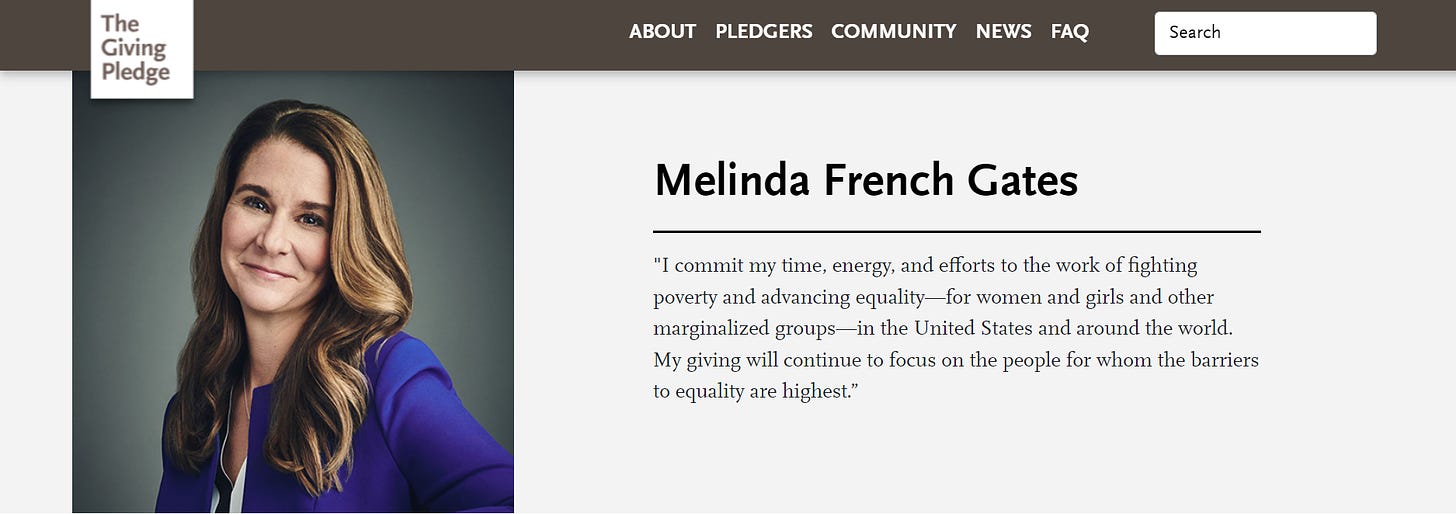
Image from https://givingpledge.org/pledger?pledgerId=428
Pledge Letter
Over four decades ago, when I was a high school senior in Dallas, Texas, I had the chance to speak at my class’s graduation ceremony. It was a tremendous honor, and I carefully considered what I wanted to say. The words I shared that day are ones that have guided me ever since:
“If you are successful, it is because somewhere, sometime, someone gave you a life or an idea that started you in the right direction. Remember that you are indebted to life until you help some less fortunate person, just as you were helped.”
At the time, I was on the cusp of an exciting new chapter: a move to North Carolina to pursue a degree in computer science. I knew how lucky I was to have the chance to go away to school and how hard my parents had worked to save up the tuition money that was making their four children’s dreams possible.
Looking back, I also feel lucky that my parents made sure I grew up in a family and community with a strong moral core. The high school I attended took seriously its motto “Serviam,” Latin for “I will serve.” At home, at school, and at our Catholic church, I learned about the importance of social justice and the responsibility we all have to make life better for others. My volunteer work at the local courthouse and a nearby school showed me that opportunities are not evenly distributed and made me more deeply conscious of my own privileges.
Those were the values I carried with me as I finished my education, started my career, and saw my life take a turn that I never could have imagined. While I’d always aspired to give back to my community, I never anticipated that I would be able to give away billions of dollars. In 2000, I helped create the Gates Foundation, which is dedicated to a world where every person has the chance to lead a healthy and productive life. In 2015, I launched Pivotal, which focuses on advancing progress for women and families in the United States and around the world.
Along the way, I co-founded the Giving Pledge in 2010 and committed to giving away the majority of my resources in my lifetime. Today, I’m reaffirming that commitment. I recognize the absurdity of so much wealth being concentrated in the hands of one person, and I believe the only responsible thing to do with a fortune this size is give it away—as thoughtfully and impactfully as possible. The ultimate goal of any philanthropist should be to render the need for philanthropy obsolete.
It’s important to acknowledge that giving away money your family will never need is not an especially noble act. There’s no question in my mind that the real standard for generosity is set by the people who give even when it means going without. That’s why, as part of this pledge, I commit to doing more than writing checks. I also commit my time, energy, and efforts to the work of fighting poverty and advancing equality—for women and girls and other marginalized groups—in the United States and around the world. My giving will continue to focus on the people for whom the barriers to equality are highest.
In the last two decades, I’ve seen that, at its best, philanthropy plays a unique role in driving progress by taking investment risks that others can’t or won’t to explore new ways of solving old problems. At the same time, I’ve also learned how important it is to ensure that the people closest to those problems have a role in designing solutions. It’s much easier to imagine that you have all the answers when you’re sitting in a conference room in Seattle than when you’re face-to-face with a business owner in Nairobi or an indigenous activist in New Mexico who is telling you in her own words about her hopes for the future and the challenges she sees to realizing them. That’s why I think philanthropy is most effective when it prioritizes flexibility over ideology—and why I’ll continue to seek out new partners, ideas, and perspectives.
My approach to philanthropy has always been data-driven, and I think it’s important for philanthropists to set ambitious goals and measure our progress against those goals. I’ve learned, however, that it’s equally important to place trust in the people and organizations we partner with and let them define success on their own terms. Philanthropists are generally more helpful to the world when we’re standing behind a movement rather than trying to lead our own.
Engaging in philanthropy has been one of the most rewarding experiences of my time on this planet. And more than 25 years into this work, I feel that my debt to life—and my debt to humanity—has only grown. I am grateful for the parents who invested in me, the teachers who nurtured me, my three children who have challenged my assumptions and expanded my horizons, and the farmers, teachers, health workers, entrepreneurs, experts, advocates, and women of all backgrounds, all around the world, who have shared their insights and perspectives with me. The ultimate measure of my success will be whether their ability to unlock progress continues long after I’m gone.

Melinda French Gates
David Rockefeller (d. 2017)
- Wealth: Estimated at $3.3 billion at the time of his death in 2017.
- Source: Heir to the Rockefeller family fortune, primarily derived from the Standard Oil Company.
- Foundations/Philanthropy: Chairman of the Rockefeller Foundation, which has a long history of philanthropic efforts focusing on public health, education, and global development.
- COVID-19 Involvement: Although David Rockefeller passed away in 2017, his legacy and the ongoing influence of the Rockefeller Foundation have continued to shape global health initiatives. The foundation has played a role in supporting public health responses, including during pandemics, through funding and research aimed at strengthening health systems.
- Manipulation of Governments and Policies: The Rockefeller family, particularly through David’s leadership, has been instrumental in shaping U.S. and global policies for decades. The Rockefeller Foundation has been involved in initiatives that promote public-private partnerships in health and education, often steering governments toward market-driven solutions. This influence has raised concerns about prioritizing corporate interests and technologies over community needs.
- Rockefeller was also a key figure in the establishment of the Council on Foreign Relations (CFR) and the Trilateral Commission, organizations that have been criticized for promoting elite consensus on global governance and economic policies. These institutions often advocate for free trade, deregulation, and globalization, which critics argue can undermine national sovereignty and the interests of ordinary citizens.
- Agenda 2030/SDGs: The Rockefeller Foundation has aligned itself with the UN’s Sustainable Development Goals (SDGs), promoting initiatives that reflect a neoliberal approach to global development. While the foundation touts its commitment to addressing poverty and inequality, critics argue that its focus on market-based solutions can exacerbate existing disparities rather than resolve them.
- Political Stance: David Rockefeller was known for his liberal political views, supporting various Democratic candidates and causes. However, his advocacy for internationalism and globalization often aligned with corporate interests, raising questions about the true beneficiaries of his philanthropic efforts. His support for institutions that influence global policy has positioned him as a figure who helped facilitate the merging of corporate and governmental agendas.
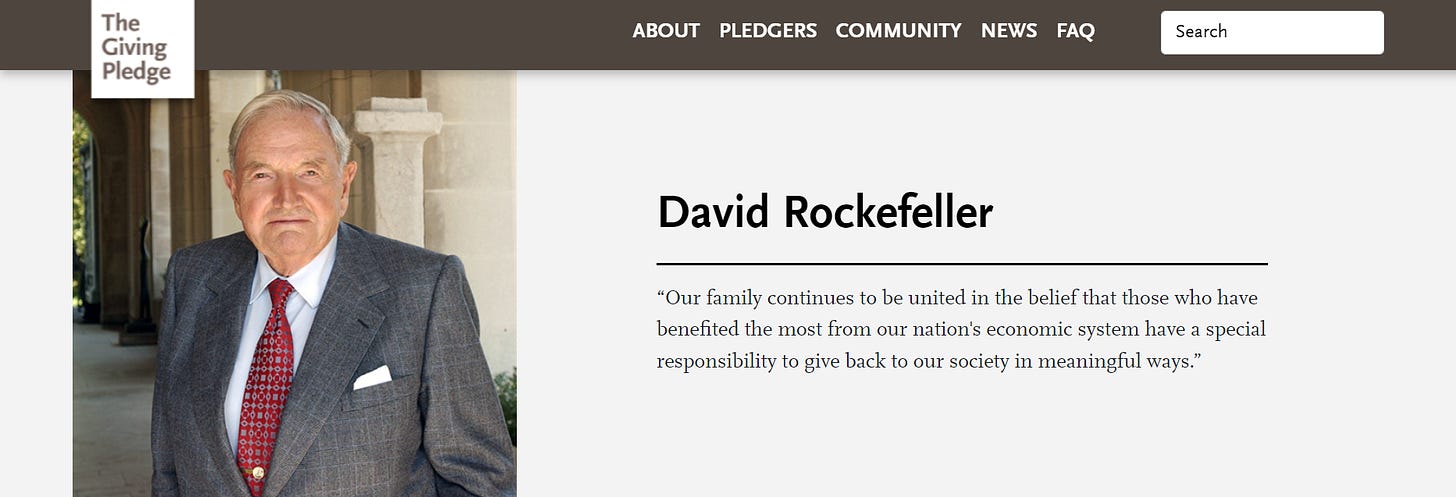
Image from https://givingpledge.org/pledger?pledgerId=272
Pledge Letter
July 21, 2010
Philanthropic Pledge
David Rockefeller
Philanthropists, at their best, try to address serious societal problems and occasionally come up with innovations that lead to enduring change. In the end, success requires much more than financial resources, although money is, of course, essential. Good ideas are just as important; otherwise one risks wasting both the funds and the opportunity. Effective philanthropy also requires patience — patience to deal with unexpected obstacles; patience to wait for the first, slight stirrings of change; and patience to listen to the insights and ideas of others.
For five generations, my family has experienced the real satisfaction and pleasure of philanthropy. Our engagement has helped to create a strong group of institutions, including the University of Chicago, The Rockefeller University, the Museum of Modern Art, and the Rockefeller Brothers Fund. The practice of philanthropy also has enabled many of us to become personally involved in efforts to address critical global challenges such as poverty, health, sustainable development, and environmental degradation. Our family continues to be united in the belief that those who have benefited the most from our nation’s economic system have a special responsibility to give back to our society in meaningful ways.
Warren Buffett and Bill and Melinda Gates share this belief and have challenged others to pledge half their assets to philanthropy during their lifetime or at their death. I am pleased to say this has long been my intent and my practice, and I am delighted to have been asked to participate in this important initiative. I hope that others will accept this challenge—and opportunity—and will join us in this worthwhile endeavor.
I also hope that our efforts to expand the scope of philanthropy as individuals, in collaboration with others, and in ways that include not only financial resources but innovative ideas and patience, will be part of the gift we all bequeath to the future.

David Rockefeller
Ted Turner
- Wealth: Approximately $2.3 billion (as of 2024).
- Source: Founder of CNN and Turner Broadcasting System, with significant investments across various sectors.
- Foundations/Philanthropy: Founder of the United Nations Foundation (UNF) and the Turner Foundation.
- COVID-19 Involvement: Ted Turner has leveraged his influence through the United Nations Foundation (UNF) to shape global narratives and responses to the COVID-19 pandemic, particularly through the COVID-19 Solidarity Fund established by the World Health Organization (WHO).
- COVID-19 Solidarity Fund:
- Designed to provide resources for frontline health workers, support vaccine distribution, and enhance public health systems globally. Critics argue that it served as a mechanism to promote a centralized, technocratic approach to pandemic response, often sidelining alternative viewpoints and grassroots solutions.
- Focused on pharmaceutical interventions, particularly vaccines, reflecting a narrative that prioritizes medical solutions over broader public health strategies, including addressing social determinants of health.
- COVID-19 Solidarity Fund:
- Propaganda and Narrative Control:
- The UN Foundation and associated organizations have been accused of employing propaganda tactics to control the narrative surrounding COVID-19, including promoting fear-based messaging to encourage compliance with public health measures and vaccination.
- Dissenting opinions on pandemic responses were often labeled as “ misinformation” or “disinformation”, creating an environment that stifled debate and marginalized alternative perspectives.
- Influence on Governments:
- Turner’s advocacy for multilateralism through the UN Foundation has resulted in significant influence over national health policies, promoting global standards and recommendations that governments are pressured to adopt.
- This approach can undermine local autonomy, reducing the ability of countries to tailor responses to their unique contexts, and can prioritize international agendas over local needs.
- UN Agendas and Depopulation Advocacy: Turner has been a long-time advocate for various United Nations agendas, particularly those focusing on population control and sustainable development. His controversial remarks about depopulation have sparked significant debate:
- He famously stated that a “sustainable” world population should be around 2 billion, advocating for measures that many interpret as endorsing population control.
- His views align with the United Nations’ emphasis on reproductive health and family planning, which, while framed as promoting individual choice, are often criticized for disproportionately targeting certain demographics in developing countries.
- Manipulation of Governments and Policies:
- Policy Advocacy: Through the UN Foundation, Turner has influenced global health policies, advocating for initiatives that prioritize certain interventions, including vaccination programs that align with his depopulation views.
- Funding and Resource Allocation: By directing funds to initiatives that support centralized health systems and vaccine distribution, the Solidarity Fund has influenced how governments allocate resources, potentially sidelining community-based health solutions that may be more effective in specific contexts.
- Political Stance: Turner presents himself as a progressive philanthropist but has faced criticism for the ethical implications of promoting depopulation narratives and influencing policy through large foundations, raising questions about the balance of power between grassroots movements and institutionalized global governance.
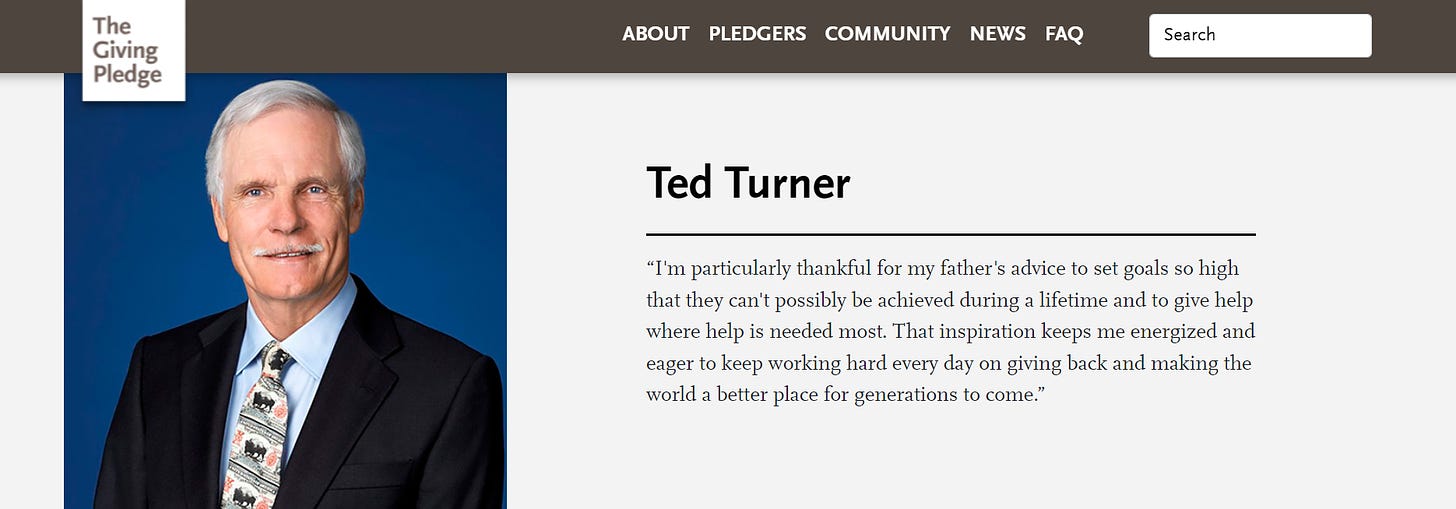
Image from https://givingpledge.org/pledger?pledgerId=302
Pledge Letter
Ted Turner’s philosophy on philanthropy and personal giving:
Giving back was instilled in me by my father at a young age. In addition to being active with Rotary and other civic organizations, my dad was also philanthropic with his own small resources. Not only did he make contributions to causes that he cared about, he also supported the tuition of two African-American students at his alma mater, Milsaps College in the late 1950s. It made a big impression on me to see someone as hard-charging as my father take the time to quietly help out two young people like this. Sometime during the 1970s, before I made a significant amount of money, I attended a seminar on philanthropy. At dinner I was seated next to a man who was quite a bit older than I and we began discussing charitable foundations. He told me about his family’s foundation and the good things they were doing around the world. I filed this away in my mind and told myself that if I were ever wealthy enough to have a foundation, I’d be sure to make it a family foundation so that my children would be involved and understand the importance of giving back.
Fast forward twenty years to September 1997. I was being honored as the 1997 Man of the Year by the United Nations Association and I was contemplating what I’d say that evening. Good thoughts about my family’s foundation, the Turner Foundation, starting flooding my mind, and I smiled at the fact that we had already invested several hundred million dollars in grants and had made a significant impact on so many people and organizations around the world. I wish I could remember who that man was who first gave me the idea for a family foundation, because I owe him a debt of gratitude. The Turner Foundation helped me understand the impact we all can have through philanthropic contributions. My experiences with organizations like the Better World Society opened my eyes to the power of assembling a team of international leaders to address global issues. Had I not experienced working with these two organizations, I don’t think I would have had the confidence to move forward with what I was about to propose to the United Nations that evening. That was the night my $1 billion pledge was heard around the world and the United Nations Foundation was born. I also made it clear that while the amount I was giving away was certainly a lot of money, I was also putting other rich people on notice that I would be calling on them to be more generous. Now that I was pledging such a large amount, I could lead by example, and it was time for me to get out in front of the parade.
Over the years, the United Nations Foundation has done innovative work to make the world a better place and has helped strengthen the U.N. in the process. This gives me a lot of satisfaction, as have my efforts to influence other wealthy people to become more active in philanthropy. After the billion dollar pledge, I challenged my fellow billionaires to do more. I realized that many of them used their net worth as a way to keep score and they enjoyed seeing where they ranked on lists put out by magazines like Fortune and Forbes. Understanding how competitive most of these people were, I called on the media to start publishing lists of people who gave away the most. I figured that this would not only motivate people to try to get to the top of the philanthropy list, it could also shame some whose names didn’t show up. Slate.com was the first to take up the list idea and other media outlets joined in later.
To date, I’ve visited more than 60 countries in every part of the world. In addition to making a lot of friends, I’ve also seen firsthand the desperate challenges facing so many people. It’s been eye-opening for me and I’ve discovered that the more people you meet, the more you learn, and the more you learn, the more you want to help, and the more you help, the better you feel. These days, I’m putting my resources and energies toward tackling the world’s more important issues. The three problems that concern me the most are the threat of nuclear annihilation, climate change and the continuing growth of the world’s population. Sometimes these problems can seem overwhelming, and when they do, I remind myself of a conversation I had many years ago with Jacques Cousteau. I asked him if he ever got discouraged or worried that the problems he was working on were insurmountable. He looked at me and said, “Ted, it could be that these problems can’t be solved, but what can men of good conscience do but keep trying until the very end?” At that moment, his very words inspired me to want to do even more.
I don’t measure success in numbers, but I consider my contributions of more than 1.3 billion dollars to various causes over the years to be one of my proudest accomplishments and the best investment I’ve ever made. Those dollars have improved lives, saved species, fought disease, educated children, inspired change, challenged ideas and opened minds; and at the time of my death, virtually all of my wealth will have gone to charity.
Looking back, if I had to live my life over, there are things I would do differently, but the one thing I would not change is my charitable giving. I’m particularly thankful for my father’s advice to set goals so high that they can’t possibly be achieved during a lifetime and to give help where help is needed most. That inspiration keeps me energized and eager to keep working hard every day on giving back and making the world a better place for generations to come.

Ted Turner
Mark Zuckerberg and Priscilla Chan
- Wealth: Mark Zuckerberg’s net worth is approximately $120 billion (as of 2024).
- Source: Co-founder of Facebook (now Meta Platforms, Inc.), a leading social media company.
- Foundations/Philanthropy: Co-founders of the Chan Zuckerberg Initiative (CZI), which focuses on health, education, and scientific research.
- COVID-19 Involvement: Mark Zuckerberg and Priscilla Chan have been actively involved in shaping the narrative around COVID-19 through their philanthropic efforts and the policies implemented by Facebook. During the pandemic, they pledged significant financial support to various health initiatives, including vaccine distribution and public health messaging.
- Funding Initiatives: They committed hundreds of millions of dollars to support vaccine research and public health campaigns, including partnerships with the WHO and other global health organizations.
- Information Control: Under Zuckerberg’s leadership, Facebook implemented measures to control the spread of misinformation regarding COVID-19. This included labeling posts about vaccines, promoting reliable sources of information, and removing content deemed false or misleading. Critics argue that this approach has led to censorship and restricted free speech, especially regarding alternative viewpoints on vaccines and public health measures.
- Public Health Messaging: The platform has been used to disseminate information about COVID-19 safety guidelines, vaccination drives, and testing initiatives. While this has helped raise awareness, there are concerns about the selective nature of the information promoted, often favoring mainstream narratives and sidelining dissenting opinions.
- Manipulation of Governments and Policies: Zuckerberg and Chan’s influence extends to policy advocacy and lobbying efforts that have shaped how governments respond to the pandemic. Through CZI, they have advocated for public policies that prioritize digital health solutions and the use of technology in public health responses.
- Partnerships with Governments: The Chan Zuckerberg Initiative has partnered with various governmental and non-governmental organizations to enhance public health infrastructure, often promoting technology-driven solutions that favor corporate interests.
- Privacy and Surveillance Concerns: Their push for digital health tools, such as contact tracing apps and vaccine verification systems, raises questions about privacy and data security. Critics argue that these technologies could pave the way for greater surveillance and control, especially in a “global health crisis”.
- Agenda 2030/SDGs: Zuckerberg and Chan’s initiatives align with the UN’s Sustainable Development Goals (SDGs), particularly in areas related to health and education. While their philanthropic efforts aim to address “global challenges”, critics argue that their approach tends to prioritize technological solutions that may not always address systemic issues of inequality and access.
- Political Stance: Zuckerberg has generally been viewed as a centrist with progressive leanings, supporting various social issues through his philanthropy. However, his political contributions and lobbying efforts often favor policies that benefit tech companies and align with broader corporate interests.
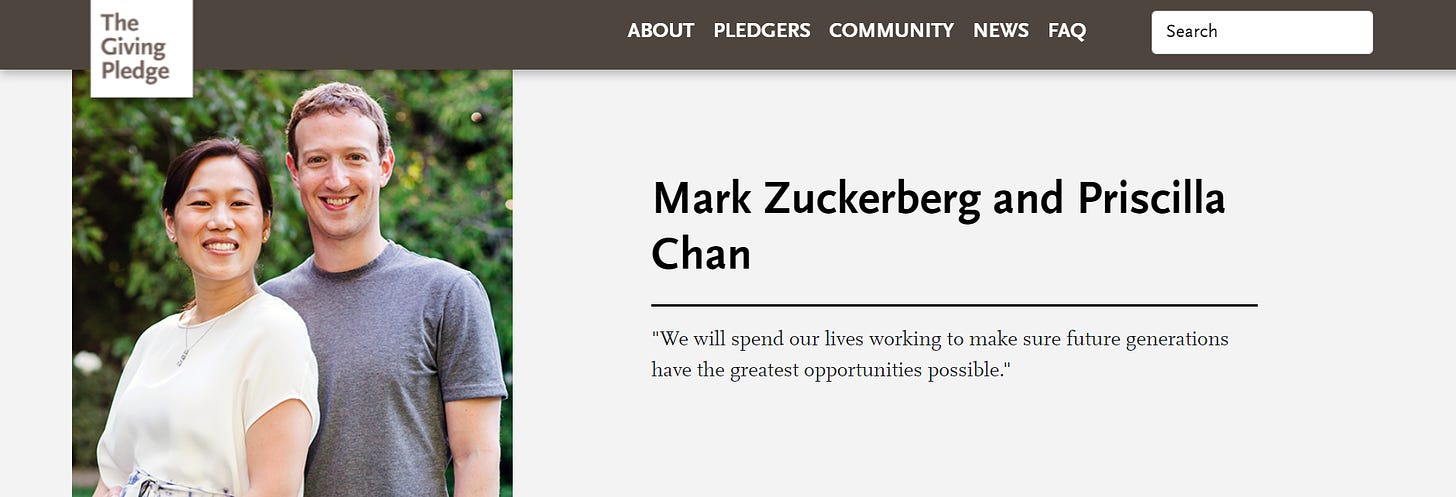
Image from https://givingpledge.org/pledger?pledgerId=314
Pledge Letter
November 9, 2015
We’ve had so much opportunity in our lives, and we feel a deep responsibility to make the world a better place for future generations. We’ve benefited from good health, great education and support from committed families and communities. We believe that in the next generation, all of our children should grow up living even better lives and striving for even more than we think is possible today.
Advancing human potential and promoting equality drives our work. We have already made long term commitments to improving education, science and health — focused everywhere from our local community in the Bay Area to around the world.
As we expand our giving, we will continue supporting the strongest leaders with the most promising ideas for advancing progress and equality around the most important challenges for the next generation — from public education to health care, from life sciences research to energy and internet connectivity.
We’ll make long term bets that others won’t make and that will take a decade or longer to achieve their goals. We’ll learn from each project and apply those lessons to future work. That’s why we’re starting and making this commitment now while we’re still early in our careers — so we can gain experience early and become more effective in our giving over time.
We salute the Giving Pledge movement, and are proud to be part of its declaration that those who have been fortunate should give back at least half of their wealth during their lifetimes. The needs of our world are great. We believe passionately that people should not wait to give back. Our giving is just starting and we commit to being active learners, listeners and participants for years to come. We’ll devote our resources as well as our personal time and energy. We will spend our lives working to make sure future generations have the greatest opportunities possible.

Priscilla Chan

Mark Zuckerberg
Pierre and Pam Omidyar
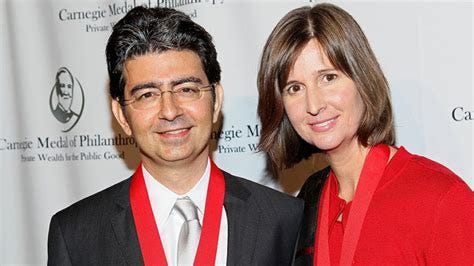
Image from https://www.medalofphilanthropy.org/pamela-and-pierre-omidyar/
- Wealth: Pierre Omidyar – Estimated $8.6 billion (as of 2024)
- Source: Founder of eBay; major investor in media, technology, and philanthropic initiatives
- Foundations/Philanthropy: Omidyar Network, Luminate, Democracy Fund, First Look Media (The Intercept)
- Involvement in COVID-19 Narrative Control: Pierre and Pam Omidyar have been involved in shaping the global COVID-19 narrative through various initiatives, particularly through their organization Luminate. These efforts, framed as combating misinformation, raised concerns about selective information dissemination and narrative control that aligned with certain political and corporate interests.
- Luminate’s Role in Shaping COVID-19 Messaging:
- Luminate, funded by the Omidyar Network, focuses on governance, media, and technology. During the pandemic, Luminate financially backed efforts to control COVID-19 information flow, supporting measures to counter “misinformation,” which often resulted in suppressing dissenting views or alternative perspectives on vaccines, lockdowns, and pandemic response.
- This involvement in media regulation and content curation amplified voices that aligned with government and institutional messaging while marginalizing critical or questioning viewpoints.
- Collaboration on the UN Verified Initiative:
- Luminate partnered with the UN, IKEA Foundation, and Rockefeller Foundation to support the UN Verified Initiative, aimed at combating disinformation during the COVID-19 crisis.
- This initiative focused on promoting approved narratives about vaccines and public health while seeking to undermine alternative viewpoints and dissenting opinions.
- Through this collaboration, Luminate effectively positioned itself within a network of powerful organizations aiming to influence public perception and control the discourse surrounding the pandemic.
- Support for Team Halo and Public Good Projects:
- Luminate worked alongside groups like Team Halo, Public Good Projects, and Shots Heard to enhance the reach of official messaging.
- These collaborations were framed as grassroots efforts to share scientific facts but played a role in reinforcing pro-vaccine narratives while suppressing criticism and skepticism around COVID-19 policies.
- The partnerships facilitated a coordinated approach to counteract perceived misinformation, often labeling dissenters as spreading harmful narratives, thereby stifling open debate and critical discourse.
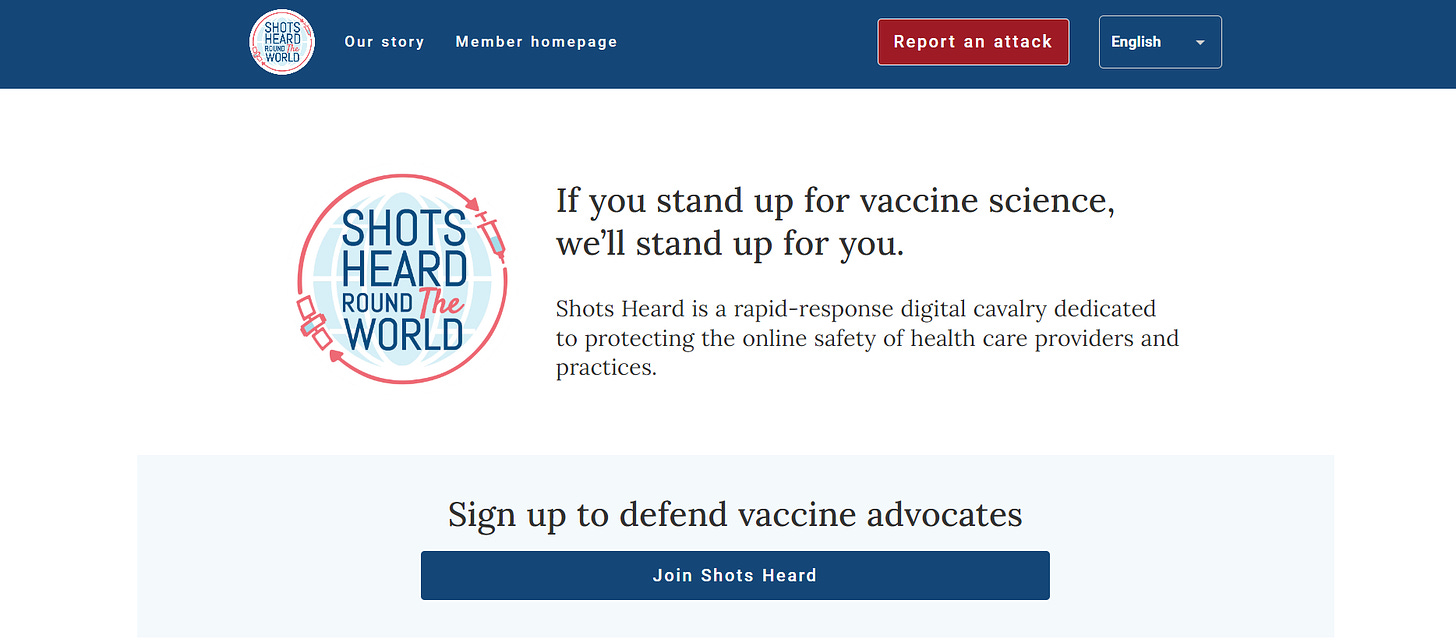
Image from https://shotsheard/org/
- Media Influence through Democracy Fund and First Look Media:
- The Omidyars’ influence extended into independent journalism through organizations like Democracy Fund and First Look Media. These platforms were active in shaping media narratives, particularly around elections, social justice issues, and during the pandemic.
- Through The Intercept, a publication funded by Omidyar, COVID-19 coverage often aligned with mainstream pandemic policies, supporting lockdowns, vaccines, and government health mandates. Critics argue that such outlets sometimes dismissed or marginalized contrarian views or investigations into the negative impacts of these policies.
- Political Stance: The Omidyars support progressive and liberal causes that align with globalist agendas, focusing on social equity, digital rights, and health policies that promote centralized control. Their funding reflects a commitment to implementing policies that facilitate government intervention and align with international regulatory frameworks.
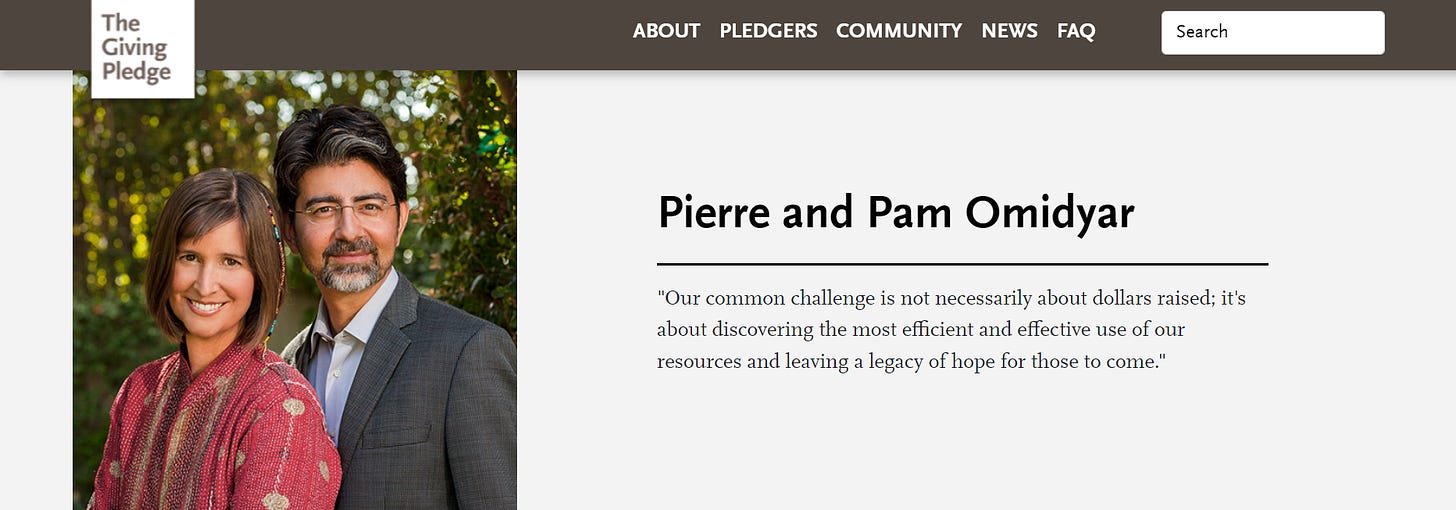
Image from https://givingpledge.org/pledger?pledgerId=258
Pledge Letter
August 3, 2010
When eBay went public in 1998, Pam and I suddenly found ourselves in a position of great wealth. In a matter of days we went from making a modest living to landing a spot on Forbes’ list of richest Americans. It was a surreal experience. But the responsibility we felt for being good stewards of that wealth was genuine—and has grown ever since.
In 2001, I publicly stated that we intend to give away the vast majority of our wealth during our lifetime. Our view is fairly simple. We have more money than our family will ever need. There’s no need to hold onto it when it can be put to use today, to help solve some of the world’s most intractable problems.
In thinking about how we could be most effective, we began our work by reminding ourselves of our core values, including respect for others and a sense of service. We’ve made a conscious effort to remain true to these guiding principles as our efforts grow and evolve. The eBay community also taught us a valuable lesson: people respond to opportunity in inspiring ways. The organizations we’ve created and the time and energy we spend on various causes is rooted in our belief that people are inherently capable but frequently lack opportunity.
Today we believe our philanthropic impact is amplified because our approach uses a wide variety of tools and resources. We don’t just write checks; we engage deeply with the organizations we support to help them reach and improve the lives of millions, not just thousands. We invest in for profit businesses that serve overlooked populations with much-needed products and services. We reach out to like-minded investors and advocates to form coalitions that support issues that will benefit from a unified voice.
So while the focus of the Giving Pledge is on the philanthropists and amounts pledged, we are inspired by the organizations we support that are doing amazing things and the people we are here to serve.
We are pleased to stand alongside Bill and Melinda, Warren, and so many others who are working every day to create positive social impact in the world. Truthfully, it’s not up to the small minority of those with money to spare; lasting change requires all of us working together across industries, sectors, and cultures. Our common challenge is not necessarily about dollars raised; it’s about discovering the most efficient and effective use of our resources and leaving a legacy of hope for those to come.

Pierre Omidyar

Pam Omidyar
Elon Musk
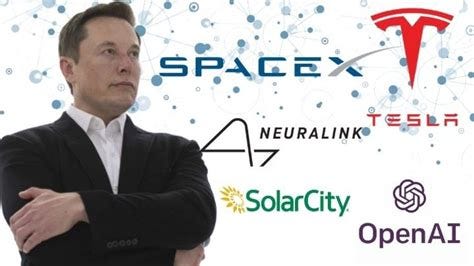
Image from https://laverdadnoticias.com/tecnologia/Cuales-son-las-empresas-de-Elon-Musk-20210807-0160.html
- Wealth: Approximately $230 billion (as of 2024), primarily from ventures in technology and transportation, including Paypal, Tesla, SpaceX, and X (formerly Twitter).
- Transhumanism: Musk is an outspoken advocate of transhumanism, which promotes enhancing the human condition through advanced technologies. His companies, especially Neuralink, focus on developing brain-computer interface (BCI) technology, aiming to create devices that can help people merge with AI. Musk envisions a future where humans can enhance cognitive abilities and address neurological disorders.
- Neuralink: Founded in 2016, Neuralink is developing implants that connect human brains to computers. The goal is to enable seamless interaction with technology, improve mental health treatments, and eventually facilitate the enhancement of human cognition. Musk has stated that these brain chips could help manage conditions like Alzheimer’s and depression while also allowing for the direct transfer of information.
- Mars Colonization: Through SpaceX, Musk aims to establish a human colony on Mars, promoting a vision of making humanity a multi-planetary species. He has proposed building a “city” on Mars that would host around a million people. Musk’s plans involve terraforming the planet to make it more hospitable and developing technologies for sustainable living in such an environment.
- Texas City Development: Musk has also discussed the development of a new city, Starbase, in Texas, where SpaceX is headquartered. This city is envisioned as a hub for innovation and technological development, aligning with Musk’s goal of creating an environment conducive to advanced technological projects, including those related to space exploration and AI.
- XPRIZE Foundation: Musk has been involved with the XPRIZE Foundation along with Peter Diamandis, known for incentivizing technological innovation through cash prizes. This organization supports projects that align with global challenges, such as climate change and health crises, promoting solutions that reflect transhumanist ideals and globalist agendas.
- Partnerships and Collaborations: Musk’s companies often collaborate with other organizations and entities that align with globalist interests. For example, X (formerly Twitter) has partnered with monitoring groups like Public Good Projects and the UN Verified Initiative, which focus on controlling narratives around technology and public health. X is still partnered with Oracle America. Oracle America, a subsidiary of Oracle Corporation, provides cloud computing, data analytics, and other technological infrastructure services to companies like X (formerly Twitter). Specifically for X, Oracle helps manage large-scale data processing, enhance performance, and improve platform reliability through its cloud infrastructure. Oracle’s systems enable X to efficiently handle massive volumes of user data, including content moderation and social media analytics. This relationship is crucial for managing the real-time operations of the platform, including tracking user engagement, content distribution, and handling large volumes of interactions. Oracle America is also currently being sued for collecting data on people without their consent or knowledge. But hey!

- Oracle was founded by Giving Pledge member Larry Ellison, who has ties to the CIA and is personal friends with Elon Musk. Ellison also holds stock in both Tesla and X (formerly Twitter), allowing him to exert influence over the decisions and direction of these companies. Oracle is also a WEF linked company. Nothing says freedom of speech like the WEF.
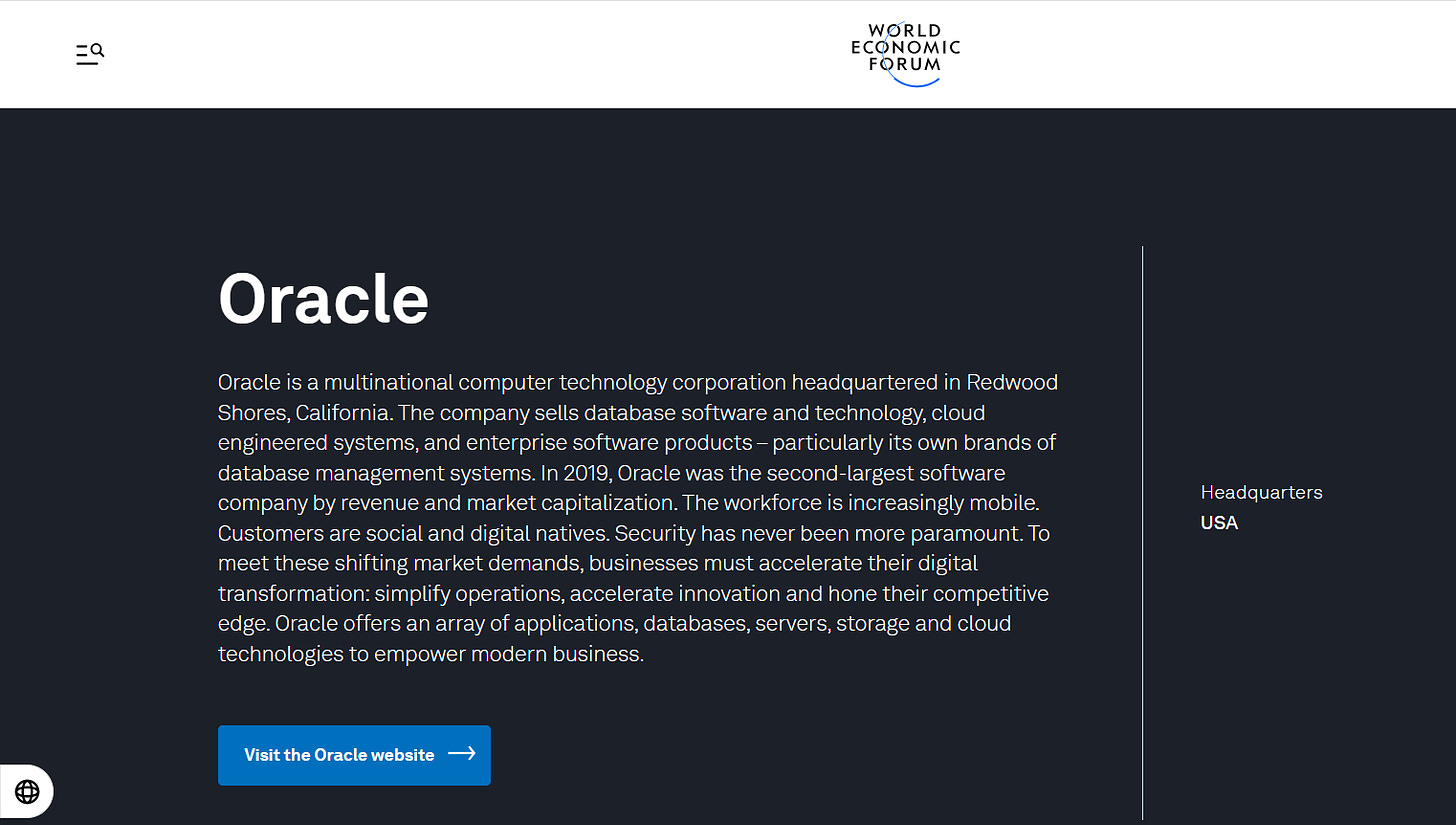
Image from https://www.weforum.org/organizations/oracle/
- Globalist Connections: Musk has been associated with elite groups such as the World Economic Forum (WEF), where he was a Young Global Leader in 2008. This connection aligns him with global initiatives promoting technological integration and societal transformation through digital governance and “innovative” technologies.
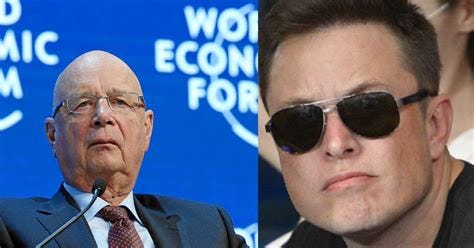
Image from https://www.upwardpost.com/node/1132
- Political Stance: Musk’s political views are often contradictory. While he promotes free speech and claims libertarian principles, his business interests frequently align with globalist agendas focused on technology, sustainability, and enhanced governance structures. His initiatives reflect a push toward digital surveillance and control through advanced technologies.
- Elon Musk’s name is on the Giving Pledge members under the year 2012, but he does not have a picture or profile with his letter like the majority of other members. It is unclear why he has his name listed as a pledger, but his information has either never been put on the site or was removed.
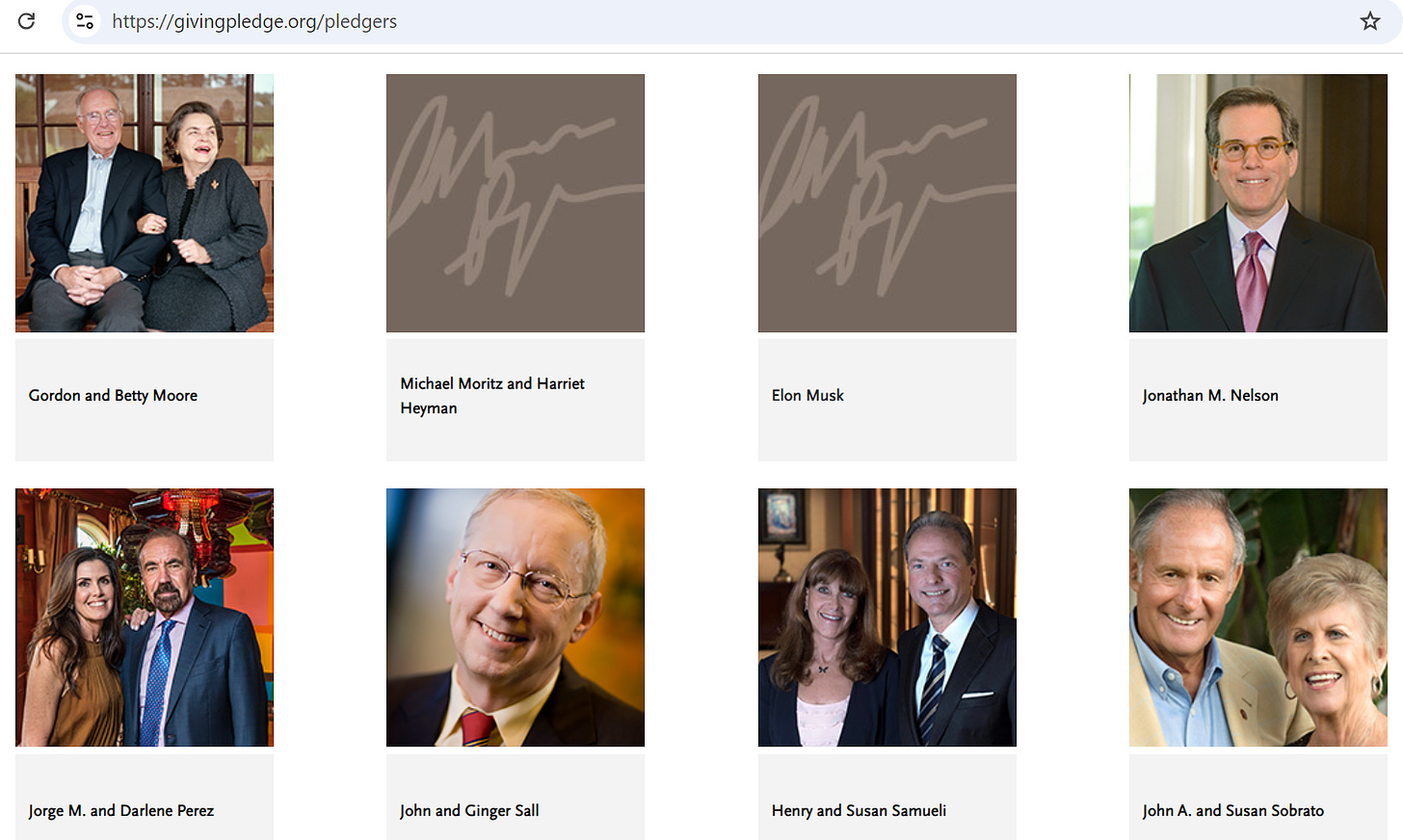
Image from https://givingpledge.org/pledgers
- There is a video of Elon Musk from DailyMotion where he discusses attending a Giving Pledge meeting, but he visibly looks distressed publicly talking about it. Very interesting indeed.
Larry Ellison
- Wealth: Estimated at $127 billion (as of 2024).
- Foundations/Philanthropy: Ellison is known for the Ellison Medical Foundation, which funds medical research and health initiatives, particularly in aging and cancer research. He has also engaged in various philanthropic efforts through Oracle Corporation.
- Involvement in COVID-19 Narrative:
- Oracle’s COVID-19 Response: During the pandemic, Oracle positioned itself as a key player in the public health sector by partnering with government agencies to provide cloud computing services and data management solutions. They developed the Oracle Health Management System, which helped manage COVID-19 testing and contact tracing for multiple states.
- Collaboration with the Trump Administration: Oracle was involved in the development of the federal government’s COVID-19 data collection and analytics platform, providing critical data services. This partnership raised questions about transparency and data privacy, especially given the vast amount of personal health data involved.
- Support for Vaccine Development: Ellison has promoted and supported technology solutions aimed at accelerating vaccine research and distribution, further entrenching Oracle in the pandemic response narrative.
- Ties to Intelligence Agencies: Ellison has historical ties to the CIA through Oracle’s software, which is used by various government and intelligence agencies for data analysis and operations. His company’s contracts with federal agencies have drawn scrutiny regarding surveillance and privacy.
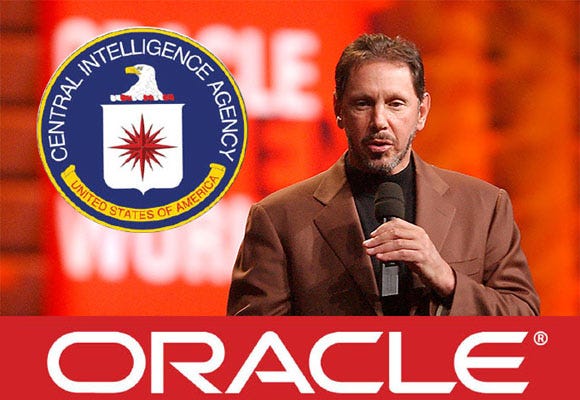
Image from https://www.pakalertpress.com/larry-ellisons-oracle-started-as-a-cia-project/
- Larry Ellison’s Relationship with Elon Musk: Ellison and Musk are close friends, with Ellison being an early supporter of Musk’s ventures. Ellison invested $1 billion in Tesla in 2018 and also joined its board of directors. In return, Ellison’s company, Oracle, has partnered with Musk’s ventures, including X (formerly Twitter), where Oracle provides cloud services. Ellison also owns stock in X. This mutually beneficial relationship highlights Ellison’s influence within Musk’s companies and their alignment in strategic business partnerships.
- Political Stance: Ellison has contributed to both Democratic and Republican candidates, often aligning his political support with business interests. He is known for advocating for tech innovation and deregulation.
- Controversies: Oracle has faced criticism for its business practices, including allegations of anti-competitive behavior. The company’s involvement in government contracts during the pandemic has raised concerns over the ethics of profiting from a public health crisis and the implications of data security.
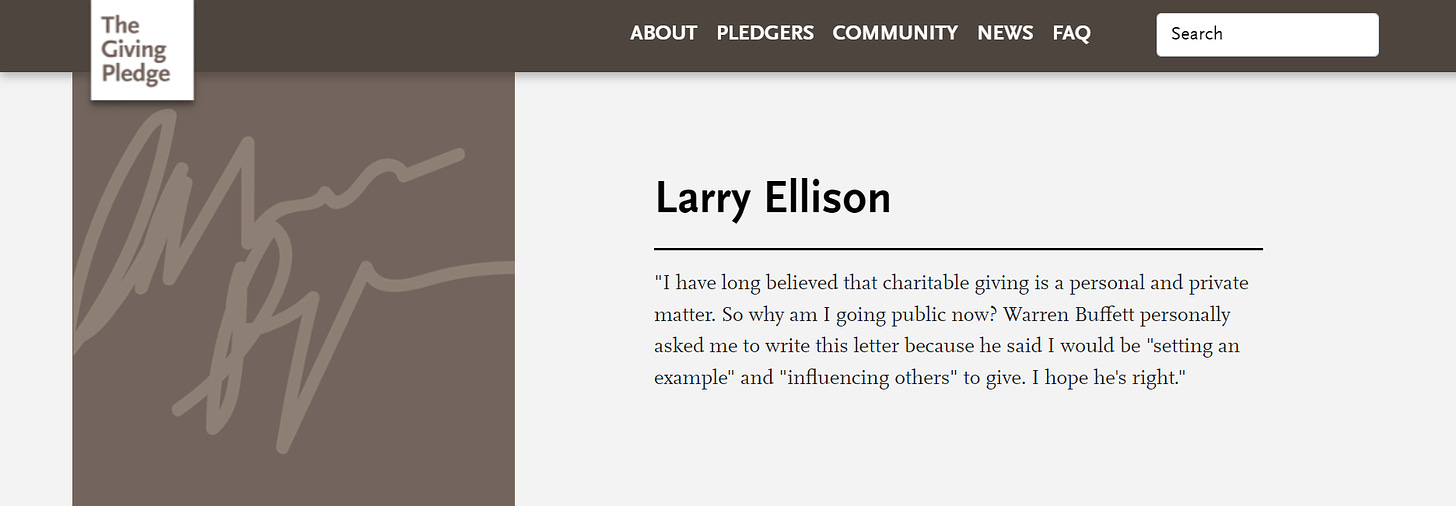
Image from https://givingpledge.org/pledger?pledgerId=192
Pledge Letter
To whom it may concern,
Many years ago, I put virtually all of my assets into a trust with the intent of giving away at least 95% of my wealth to charitable causes. I have already given hundreds of millions of dollars to medical research and education, and I will give billions more over time. Until now, I have done this giving quietly — because I have long believed that charitable giving is a personal and private matter. So why am I going public now? Warren Buffett personally asked me to write this letter because he said I would be “setting an example” and “influencing others” to give. I hope he’s right.
Larry Ellison
Jeff Skoll
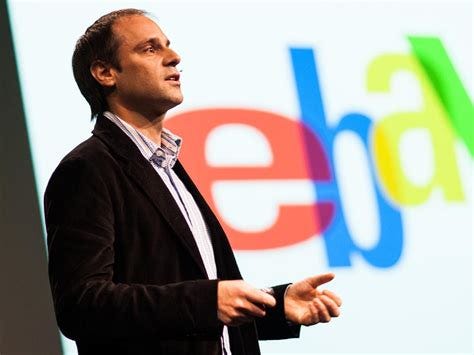
Image from https://knownetworth.com/jeffrey-skoll-net-worth
- Wealth: Estimated at $3.4 billion (as of 2024)
- Source: Co-founder of eBay; made his fortune from eBay’s initial public offering (IPO) in 1998, where he served as the company’s first president.
- Foundations/Philanthropy: Skoll Foundation, which focuses on social entrepreneurship and impact investing.
- In 2004, Jeff Skoll founded Participant, a media company aimed at manipulating public perception by producing films that push his preferred social and political agendas. His early productions like Syriana, Good Night, and Good Luck, and An Inconvenient Truth were designed to stir public emotion and push for climate change narratives, with An Inconvenient Truth being particularly instrumental in Al Gore’s global climate crusade. Skoll’s use of entertainment to drive social campaigns highlights his agenda-driven approach to shaping public opinion.
- Jeff Skoll, who made his fortune as eBay’s first president, has been funding “pandemic preparedness” since 2009, even longer than Bill Gates. His efforts include producing the 2011 film Contagion, afilm his company Participant Media partnered with Warner Brothers to put out. https://www.youtube-nocookie.com/embed/xOToAAoWrzg?rel=0&autoplay=0&showinfo=0&enablejsapi=0The move was supposedly made to raise awareness of “global pandemics” and directing significant resources through the Skoll Global Threats Fund, which he launched in 2009 to address global risks like pandemics. For those who don’t remember, this was a movie about a global pandemic that started with a virus from a bat (imagine that).
- Jeff Skoll funded the FluNearYou Initiative in 2011, a surveillance tool designed to track flu-like symptoms across the population, under the guise of public health. This initiative involved partnerships with the Skoll Global Threats Fund, Boston Children’s Hospital, and the American Public Health Association. Bill Gates was also involved in funding similar pandemic preparedness projects through the Bill & Melinda Gates Foundation, aligning with the broader agenda of global health surveillance. The initiative raised concerns about the collection and use of personal health data, laying the groundwork for greater health monitoring and control.

Image from https://endingpandemics.org/projects/flu-near-you/
- In 2018, he spun off this work into a nonprofit called Ending Pandemics, further advancing his agenda of global health surveillance and control, with pandemic tracking systems now in place in 36 countries.
- Involvement in COVID-19 Narrative: Through Participant Media, he supported various initiatives related to public health messaging during the pandemic, often emphasizing the importance of science and data in tackling COVID-19. His productions have included narratives that shape public perception and policy.
- Influence in Energy Policy: Skoll’s foundation has invested in renewable energy and sustainable practices, often pushing for policy changes that align with environmental sustainability.
- Political Stance: Generally aligns with progressive policies, advocating for social justice, climate change action, and health equity.
- Government or Political Work: Has been involved in initiatives promoting environmental sustainability and public health; often collaborates with non-profits and governmental organizations to influence policy.
- Controversies: His media projects have been criticized for promoting a particular narrative or agenda, especially regarding social issues and environmental activism. There has also been scrutiny over the effectiveness of impact investing, with some questioning whether it achieves its stated goals.
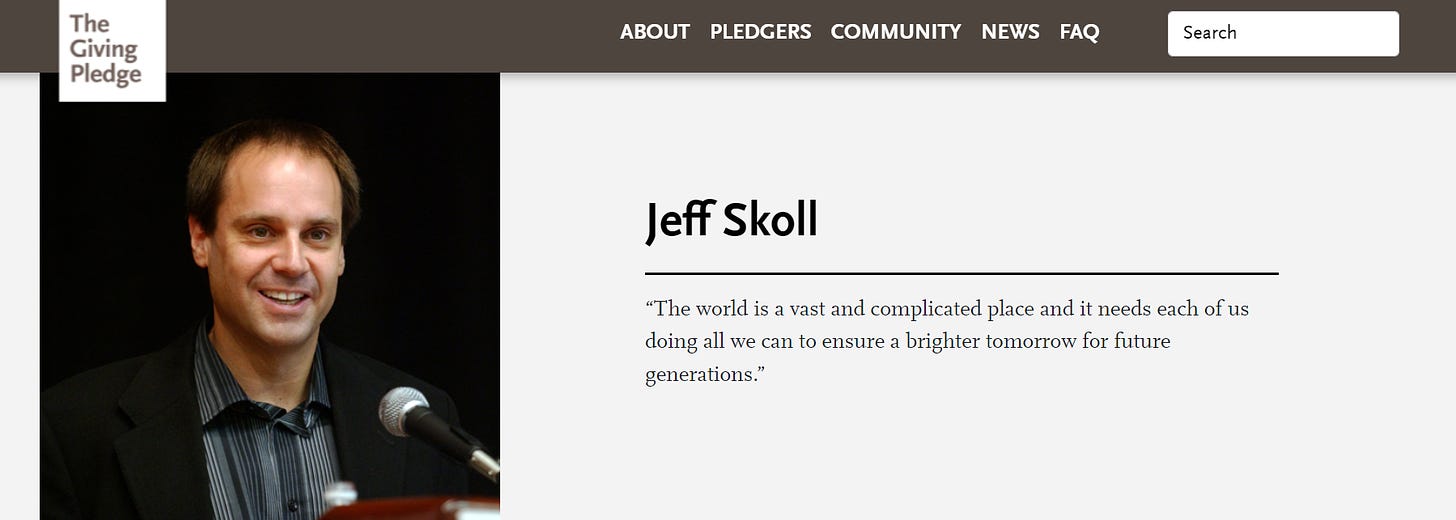
Pledge Letter
July 20, 2010
I grew up in a middle class family in Canada. My dream was to be a writer who tells stories that make a difference in the world. Along the way, when I got out of business school, I became the first full-time employee and the first President of a fledgling company with an online auction service called AuctionWeb. That company later became better known by its corporate name, eBay. When the company went public in 1998, all of a sudden I went from being in debt and living in a house with five roommates, to having hundreds of millions of dollars in the value of my eBay shares.
Until then, I had not thought much about philanthropy. But with my newfound paper wealth, I resolved to do good things for the world with that money, in smart ways.
The first thing I did, in 1999, was to start the Skoll Foundation. Today, the Skoll Foundation has become the leading organization in the world supporting social entrepreneurs to drive large-scale impact. Each year, we find innovative social entrepreneurs from around the world—people like Paul Farmer of Partners in Health or Ann Cotton of Camfed—and we support them over a multiyear period. We also convene the annual Skoll World Forum on Social Entrepreneurship, at Oxford University. I am proud of the work we are doing together with our partners and grantees. In the words of one of my heroes, John Gardner, we are “betting on good people doing good things.”
In 2004, I resurrected my original vision of telling stories that make a difference in the world by creating Participant Media. Since then, Participant has released over 25 movies, including Good Night and Good Luck, The Kite Runner, Charlie Wilson’s War, An Inconvenient Truth, The Cove and Syriana. Our films have won four Academy Awards and received 18 nominations. But I am most proud of the impact that these films have had on social issues—human rights, Afghanistan, climate change and so on. We even have a social action network called TakePart that is rapidly becoming the online community for social activists and concerned citizens alike. For me, Participant is another form of philanthropy, as I believe that good stories well told can inspire and compel social change.
In 2009, I started a new foundation, called the Skoll Global Threats Fund, to deal with urgent threats that imperil humanity. The first five issues are climate change, Middle East peace, nuclear weapons, pandemics and water scarcity. These are all issues that could bring humanity to its knees if we don’t tackle them together now.
I have already donated about half of my net wealth to these organizations in the last eleven years. I expect to contribute almost all of my wealth to the betterment of humanity either during or after my lifetime. In the meantime, I will continue to tell stories that awaken enlightened self-interest, activate citizen engagement, and galvanize political will. I will continue to double down on innovative solutions that have enduring social impact. And I will continue to support catalytic mechanisms, like the Skoll World Forum and TakePart, that unite the forces of change from all corners and cultures of humanity.
In doing so, I hope also to inspire others to do the same. The world is a vast and complicated place and it needs each of us doing all we can to ensure a brighter tomorrow for future generations. Conrad Hilton said it is the duty of successful people to give back to the society from which their success was derived. I feel privileged to have grown up in Canada and to now live in the US, two countries that value and reward education, hard work and good choices. I feel lucky to have been able to pursue my dreams and I hope that my contributions will in some small way lead to a sustainable world of peace and prosperity.

Jeff Skoll
Subscribe to Bodhisattvas Betty
By Me Stuff · Launched 10 months ago
“Three things cannot long be hidden: the sun, the moon, and the truth.”-Buddha
Leave a Reply